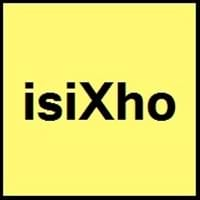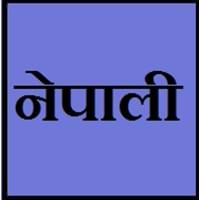Xhosa and Nepali
Countries
South Africa
India, Nepal
National Language
South Africa
Nepal
Second Language
Lesotho, South Africa
Republic of Brazil
Speaking Continents
Africa
Asia
Minority Language
Botswana, Lesotho
People's Republic of China
Regulated By
Not Available
Language Academy of Nepal
Interesting Facts
- Xhosa has 15 click sounds, borrowed from the khoi-khoi and san languages of the South Africa.
- The same sequence of consonants and vowels can have different meaning when said with different tones, so Xhosa is tonal.
- Before the term "Nepali" was coined, historically the language was first called the Khas language, Gorkhali or Gukhali.
- Nepali has borrowed many loanwords from neighboring Tibeto-Burmese languages.
Similar To
Zulu, Swazi, and Ndebele
Hindi
Derived From
Khoi-Khoi and San Languages
Sanskrit Language
Alphabets in
Xhosa-Alphabets.jpg#200
Nepali-Alphabets.jpg#200
Writing Direction
Not Available
Left-To-Right, Horizontal
Hello
Molo
नमस्ते (namaste)
Thank You
Ndiyabulela
धन्यवाद (dhanyabad)
How Are You?
Unjani
तिमीलाई कस्तो छ? (timi lai kasto cha?)
Good Night
Ulale kakuhle
शुभ रात्री (subha ratri)
Good Evening
Ubusuku obuhle
शुभ सन्ध्या (subha sandhya)
Good Afternoon
Uben' emva kwemini entle
Good afternoon
Good Morning
Molo
शुभ प्रभात (subha prabhat)
Sorry
Ndicela uxolo
माफ गनुस् (maapha ganus)
Bye
Uhambe/Usale kakuhle
नमस्ते (namaste)
I Love You
Ndiyakuthanda
म तपाइलाइ माया गर्छु। (ma tapainlai maya garchu)
Excuse Me
Uxolo
माफ गनुस् (maapha ganus)
Where They Speak
South Africa
Nepal
How Many People Speak
Not Available
Dialect 2
Thembu
Bajhangi
Where They Speak
South Africa
India, Nepal
Dialect 3
Hlubi
Baitadeli
Where They Speak
South Africa
Nepal
Native Name
isiXhosa
नेपाली (nēpālī)
Alternative Names
“Cauzuh” (pej.), Isixhosa, Koosa, Xosa
Eastern Pahadi, Gorkhali, Gurkhali, Khaskura, Nepalese, Parbate
French Name
xhosa
népalais
German Name
Xhosa-Sprache
Nepali
Pronunciation
Not Available
Not Available
Ethnicity
amaXhosa, amaBhaca
Gurkha, Khas people, Madhesi and Tharu
Origin
16th Century
19 BC
Language Family
Niger-Congo Family
Indo-European Family
Subgroup
Benue-Congo
Indo-Iranian
Early Forms
No early forms
Khas language, Gurkhali, Parbatiya, Dzongkha Lhotshammikha
Standard Forms
isiXhosa
Nepali
Language Position
Not Available
Signed Forms
Signed Xhosa
Signed Nepali
Scope
Individual
Individual, Macrolanguage
ISO 639 6
Not Available
Not Available
Glottocode
xhos1239
nepa1254
Linguasphere
99-AUT-fa
12
Language Type
Living
Living
Language Linguistic Typology
Subject-Verb-Object
Subject-Object-Verb
Language Morphological Typology
Not Available
Agglutinative
All Xhosa and Nepali Dialects
Most languages have dialects where each dialect differ from other dialect with respect to grammar and vocabulary. Here you will get to know all Xhosa and Nepali dialects. Various dialects of Xhosa and Nepali language differ in their pronunciations and words. Dialects of Xhosa are spoken in different Xhosa Speaking Countries whereas Nepali Dialects are spoken in different Nepali speaking countries. Also the number of people speaking Xhosa vs Nepali Dialects varies from few thousands to many millions. Some of the Xhosa dialects include: Gcaleka, Thembu. Nepali dialects include: Doteli , Bajhangi. Also learn about dialects in South American Languages and North American Languages.
Xhosa and Nepali Speaking population
Xhosa and Nepali speaking population is one of the factors based on which Xhosa and Nepali languages can be compared. The total count of Xhosa and Nepali Speaking population in percentage is also given. The percentage of people speaking Xhosa language is 0.11 % whereas the percentage of people speaking Nepali language is 0.25 %. When we compare the speaking population of any two languages we get to know which of two languages is more popular. Find more details about how many people speak Xhosa and Nepali on Xhosa vs Nepali where you will get native speakers, speaking population in percentage and native names.
Xhosa and Nepali Language Codes
Xhosa and Nepali language codes are used in those applications where using language names are tedious. Xhosa and Nepali Language Codes include all the international language codes, glottocodes and linguasphere.





